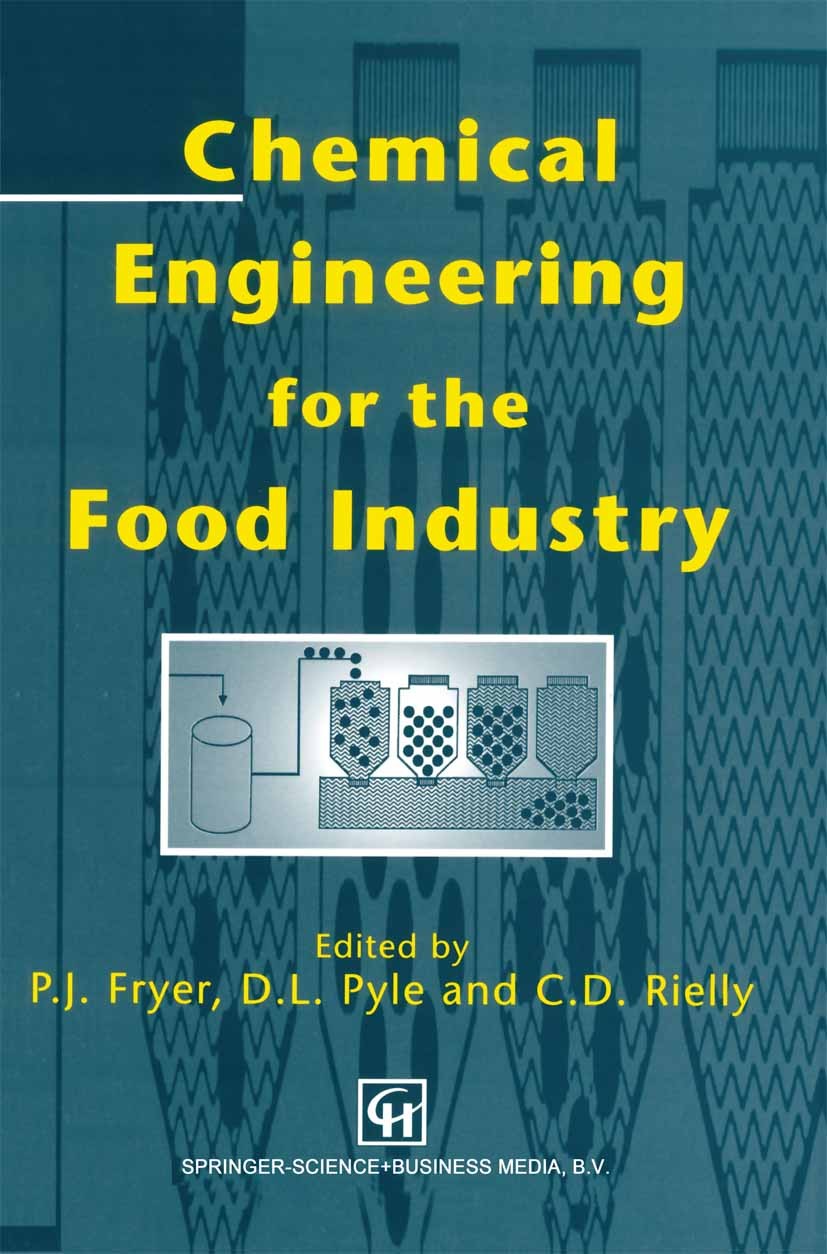| 书目名称 | Chemical Engineering for the Food Industry | | 编辑 | P. J. Fryer,D. L. Pyle,C. D. Rielly | | 视频video | http://file.papertrans.cn/225/224327/224327.mp4 | | 丛书名称 | Food Engineering Series | | 图书封面 |  | | 描述 | Industrial food processing involves the production of added value foods on a large scale; these foods are made by mixing and processing different ingredients in a prescribed way. The food industry, historically, has not designed its processes in an engineering sense, i.e. by understanding the physical and chemical principles which govern the operation of the plant and then using those principles to develop a process. Rather, processes have been ‘designed‘ by purchasing equipment from a range of suppliers and then connecting that equipment together to form a complete process. When the process being run has essentially been scaled up from the kitchen then this may not matter. However, there are limits to the approach. • As the industry becomes more sophisticated, and economies of scale are exploited, then the size of plant reaches a scale where systematic design techniques are needed. • The range of processes and products made by the food industry has increased to include foods which have no kitchen counterpart, such as low-fat spreads. • It is vital to ensure the quality and safety of the product. • Plant must be flexible and able to cope with the need to make a variety of products | | 出版日期 | Book 1997 | | 关键词 | chemical engineering; food; food industry; food processing; processing | | 版次 | 1 | | doi | https://doi.org/10.1007/978-1-4615-3864-6 | | isbn_softcover | 978-1-4613-6724-6 | | isbn_ebook | 978-1-4615-3864-6Series ISSN 1571-0297 Series E-ISSN 2628-8095 | | issn_series | 1571-0297 | | copyright | Springer Science+Business Media Dordrecht 1997 |
The information of publication is updating

|
|
 |Archiver|手机版|小黑屋|
派博传思国际
( 京公网安备110108008328)
GMT+8, 2026-1-27 01:02
|Archiver|手机版|小黑屋|
派博传思国际
( 京公网安备110108008328)
GMT+8, 2026-1-27 01:02


